Top 10 Works of Art Outside in the USA
Mount Rushmore
Location: A few miles SW of Keystone, South DakotaThis enormous granite sculpture was
designed by American artist Gutzon Borglum (1867-1941). Trained in Paris and a
friend of another great artist, Auguste Rodin, Borghum’s work was carried on by
his son Lincoln Borglum after the artist’s death. The portrait busts, or heads, of
American Presidents George Washington, Thomas Jefferson, Theodore Roosevelt,
and Abraham Lincoln are 60 feet high and carved into a mountain named for a
famous New York lawyer, Charles E. Rushmore who prospected for gold there
regularly. Ironically, the Lakota Sioux who once ruled this region called the
mountain The Six Grandfathers. Is this great mountain expecting two equally admired additions? One can only hope.
The Mount Rushmore National Park is open every day of the year except for
Christmas Day, December 25. While admission is free, each car is charged a $10
parking fee.
The Statue of Liberty
Location: New York City, New YorkAlmost unknown is the full
name, The Statue of Liberty Enlightening the World. Lady Liberty, as she is
affectionately known, was a gift to the United States from the people of France
in 1886 as a congratulatory gift on the signing of the Declaration of
Independence. Designed by Frederic Auguste Bartholdi, the Statue of Liberty has
a copper-clad exterior, and the internal structure was engineered by Alexandre
Gustave Eiffel, the famed Eiffel Tower designer. The Statue of Liberty with its
base stands 305 feet tall.
Visitors used to be able to
climb steps inside the Statue of Liberty and have a stunning view of the New
York Harbor but currently, this is not allowed. Visitors have access to the
Statue of Liberty Museum and the grounds of Liberty Island.
The Statue of Liberty is in a National Park that is open every day of the
year except Christmas Day, December 25. While entry to the statue is free, you
must pay a ferry fee to get to the Island where Lady Liberty resides. Ages 13
and over $24, Senior Citizens aged 62 and over $18, Children ages 4-12 $12, and
Children under the age of 4 may ride for free.
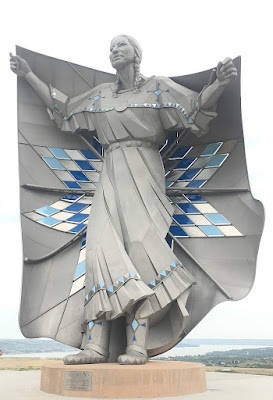
Photo courtesy WikimediaCommons
Dignity sculpture of Native American woman
Location: I-90, Chamberlain, South DakotaI was fully prepared to hate this 50-foot steel sculpture of a Native American woman entitled Dignity. The sculpture was commissioned in 2014 by a white couple, Norm and Eunabel McKie of Rapid City, South Dakota. The female figure was designed by a white artist Dale Claude Lamphere and native Lakota artist David Claymore designed the star quilt that lady Dignity is mid-wrap-- she holds her arms out with the quilt corners in each hand. The back of the sculpture reveals the wonderful star quilt pattern in shades of blue.
Look closer at the quilt and you will see that each piece moves with the winds that often come through this piece of the United States. There is the light that illuminates the pieces of the reflective quilt moving in the wind. Dignity is a wonderful and iconic work of American art and I cannot wait to visit sometime soon.

photo courtesy JeffLindsay via Morguefile.com
Cadillac Ranch
Cadillac Ranch was created in 1974 by artists Chip Lord, Hudson Marquez, and Doug Michels, who were a part of an art group known as the Ant Farm. This whimsical roadside attraction is perhaps the most fun work of outside art on this list. Cadillac Ranch is comprised of an unknown number of older Cadillacs that have been buried nose-first in an angle that is said to mimic the angle of the Great Pyramid of Giza. If you have to ask, “What does it mean?”, Cadillac Ranch is a commentary on the American love of the automobile, the roadside attraction, and consumerism. It is a monument to the iconic large metal automobiles that used to be more common in the United States. Perhaps they are appropriately buried as dead burners of fossil fuels. One of the beautiful things about art is that you, the viewer, get to put your own spin on how you see and experience art. The artist creates meaning and perhaps has a meaning in mind, but you also get to bring meaning to the art table.
The Cadillac Ranch is free and open to the driving-by public year-round. I
can see from many of the photos online that the cars are colorful from infinite
layers of graffiti, just saying.
The St. Louis Gateway Arch
Location: St. Louis, MissouriThe St. Louis Gateway Arch was
built near the beginning of the famous Louis and Clark expedition, which got
its start from Thomas Jefferson. This amazing piece of architectural art was
designed by Finnish-American architect Eero Saarinen and engineered by
Hannskarl Bandel in 1947. The St. Louis Gateway Arch was built between 1963 and
1968. This inverted steel catenary arch is 620 feet tall and 630 feet wide at
its base. Tourists can ride a tram to an observation tower at the top of the
arch.
The St. Louis Gateway arch is a part of the Jefferson National Expansion
Memorial. The St. Louis Jefferson Arch is open every day of the year except
Thanksgiving, Christmas, and New Year’s Day. To take the tram to the top of the
arch the fees are as follows: Adults 16 and up $15, Children ages 3-15.
Note: On the website, the St. Louis Gateway Arch reminds visitors to anticipate 30-minute delays for passing through security-- perhaps it is best to arrive early if you have a reservation.
Crazy Horse Memorial
Location: Crazy Horse, South DakotaThe Crazy Horse Memorial was
begun by Polish-American sculptor Korczak Ziolkowski (1908-1982) and Lakota
Indian Chief Henry Standing Bear in 1948, to honor the heritage of North
American Indians. To this day, the memorial at Thunderhead Mountain remains a
work in progress. When completed, the Crazy Horse Memorial will be the largest
sculpture in the world at 641 feet wide and 563 feet high.
The Crazy Horse Memorial appears to be open most anytime, but you may want
to visit their website or call first to make sure they are open. Entrance fees
are as follows:
$35: 3 or more people in a vehicle
$30: 2 people in a vehicle
$15: 1 person in a
vehicle
$10: Per person on a
motorcycle, bicycle, or walking
Washington Monument
Location: 2 15th Street, NW, Washington, DC 20024Rising a little over 555 feet
tall, this graceful sand-colored obelisk was built to commemorate the first
American President George Washington. Designed by American architect Robert
Mills (1781-1855), the Washington Monument was begun in 1848 but was not completed
until 1884. Visitors may climb 897 steps or take the elevator to the top of the
monument.
The Washington Monument is open every day of the year except the 4th of
July and Christmas Day, December 25, from 9am to 5pm-- the last tour starts at
4:30pm. Tickets for this memorial are free but if you make a reservation there
is a $1 charge per person. The ticket window opens at 8:30am though the line is
known to start forming as early as 7:30am. Get there early as tickets are given
on a first-come, first-served basis and only 6 tickets at a time may be
distributed.
The Washington Monument is on
The Mall in the nation's capital, Washington D.C. Also on The Mall are many of
the great museums that comprise The Smithsonian. These museums include The National Museum of African American
History and Culture, The National Museum of African Art, The National Air and
Space Museum, The National Museum of the American Indian, The Hirschhorn Museum
and Sculpture Garden, and, of course, the "castle" also known as The
Arts and Industries Building, and many more. Because these museums are funded
by federal taxes, entrance to all museums is free.
Vietnam Memorial
Location: 5 Henry Bacon Drive NW, Washington, DC 20002Designed by Chinese American artist Maya Lin (b. 1959), this war memorial revolutionized the design of war memorials forever. Built in 1982, the Vietnam War Memorial comprises two long black granite walls over 246 feet in length and between eight inches and ten-feet high. The names of the Vietnam War dead and those missing in action, have been etched into the reflective surface of the granite using the Optima typeface. The shiny stone reflects back to the viewer who can literally see themselves in the wall. It takes a lot of time to stroll past the full names of the dead and missing and hopefully the power here is in the repetition and the sheer quantity of people lost. This can be an overwhelming experience that helps to place war in perspective. People come here to honor the people whose names are on this wall-- be respectful as you enter here.
The Vietnam War Memorial is open every day of the year, 24 hours a day,
and admission is free. There are park rangers on site from 9:30am to 10pm daily
to answer questions.
The Lincoln Memorial
Location: 2 Lincoln Memorial Cir NW, Washington, DC 20002The Lincoln Memorial was built
to honor the 16th President of the United States Abraham Lincoln. The classical
building housing the sculpture was designed by American architect Henry Bacon
(1866-1924), and the statue of Lincoln was created by American sculptor Daniel
Chester French (1850-1931). Etched onto the inside of the building are two of
Lincoln’s famous speeches, and the Memorial was built between 1914 and 1922.
The Lincoln Memorial was famous for being the site of Dr. Martin Luther King’s “I Have A Dream” speech, given in 1963.
The Lincoln Memorial is open every day of the year, 24 hours a day, and
admission is free. There are park rangers on site (except on Christmas Day
December 25) from 9:30am to 10pm daily to answer questions.
Roden Crater
Location: Painted Desert, ArizonaThe Roden Crater is the
brainchild of American artist James Turrell (b. 1943) and lies in a dormant
volcano crater in the Painted Desert of Arizona. This crater is currently being transformed by James Turrell into a unique
astronomical observatory and artistic place of transformation. No, you can’t go
there yet but based on the previous work of this ethereal artist, this outdoor
artwork is worth waiting for.
I originally wrote this article in 2009 and this unique work of art was expected to open to the public in 2011. Unfortunately, in 2022, this much-awaited work of art is still not open to the public. It is perhaps akin to waiting for George R. R. Martin to write and release the final book of Game of Thrones. Will it ever happen? We must all wait and see.
ProTip: If you plan on visiting
more than a few National Parks in a year, I recommend the US Park Pass which costs $80 for the whole year.
There are many more wonderful sites to see along the American highway. This list represents a very small portion of the wonderful works of art that are open to the public and outdoors in the United States.
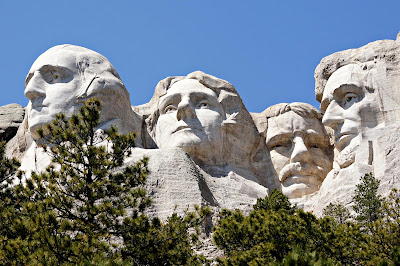


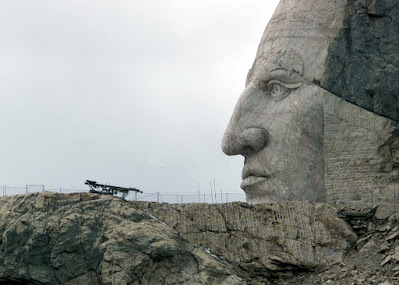


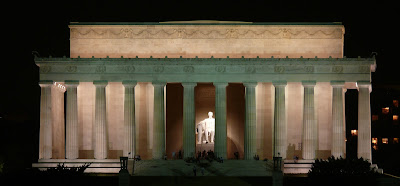
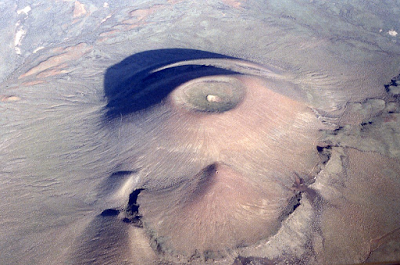
No comments:
Post a Comment